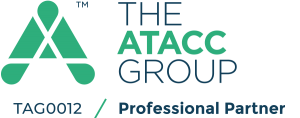Beacon Park Innovation
Centre, Gorleston,
Norfolk, NR31 7RA
Violence Prevention Supplier
Through our S.A.F.E. System
Click here to learn more
E: admin@trisat.co.uk
Opening Times:
Mon - Fri: 09:00 - 17:00hrs
With the increase of High Risk environments impacting Low Risk businesses, the need to be Risk focussed in your choice of training is paramount, in-fact the Health and Safety Executive (HSE) and the European Resuscitation Council Guidelines have now changed, which places the responsibility of duty of care onto the business. Trisat Ltd believes in providing the highest level of First Aid training through this new research and guidelines:
Even though some organisations work in low risk environments; such as office blocks etc The need for those organisations if located in metropolitan areas, should consider the wider High Risks of Crime & Terrorism. Trisat is committed to the delivery of Advanced First Aid skills and the introduction of easy to learn life critical techniques such as Tourniquets & Haemostatic dressings into high-risk environments.
We recommend and advocate the European Resuscitation Council (2015) Guidelines that advise the following in First Aid at Work training delivery:
“Use a haemostatic dressing when direct pressure cannot control severe external bleeding or the wound is in a position where direct pressure is not possible. Training is required to ensure the safe and effective application of these dressings”.
and
“Use a tourniquet when direct wound pressure cannot control severe external bleeding in a limb. Training is required to ensure the safe and effective application of a tourniquet”.
The Health & Safety Executive (2016) position statement on their use in high risk industry, suggests the following (even though some first aid qualifications and awarding bodies refuse to follow guidance):
“The recent European Resuscitation Council review of a number of first aid protocols suggests there is a need in certain circumstances for first aid kits to contain haemostatic dressings and tourniquets. The view of HSE is that the inclusion of these items is based on your First Aid Needs Assessment”.
Trauma remains one of the major killers in our modern society that has been amplified by busier road systems (Road Accidents), Crime (Knife Attacks and Blunt Trauma), Terrorism (Vehicle Borne and IED) and Industries use of Heavy Machinery. Improved non-clinical medical care enables us to sustain life in the face of many serious conditions (aiding the Ambulance Service) in or out of the workplace (including lone workers).

What is evident is that from 2018 to the present, there is a concern that the speed of response to these potentially lifesaving changes are not finding their way to the “shop floor” with the urgency they deserve and also that some of the larger training organisations are not following the guidelines.
Trisat has developed this Risk based Tool that will enable you to at least be more informed when making a decision on your training requirement: